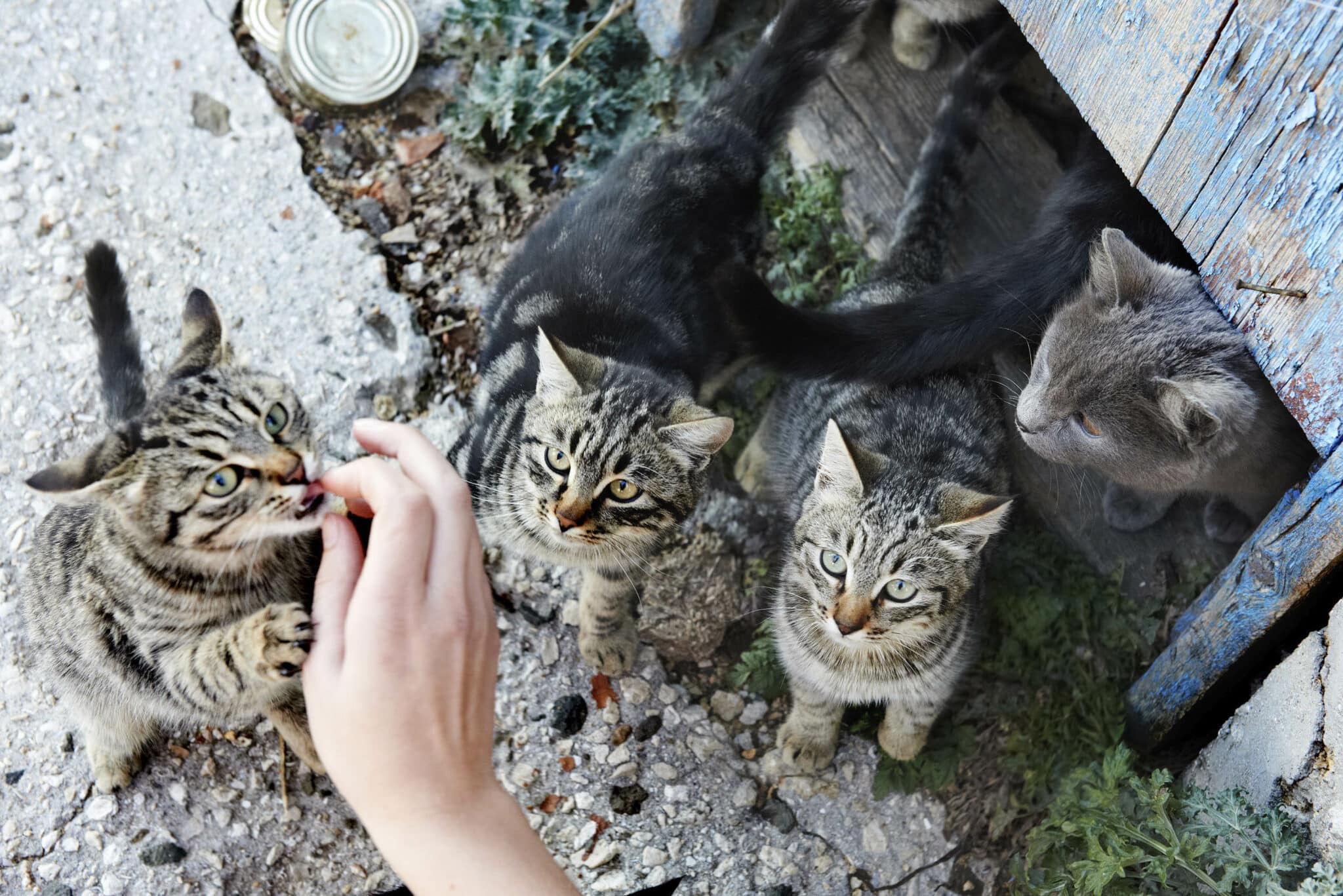
Spay and Neuter is Key to Avoiding these Health Issues

With a new year starting off, the Investigations and Emergency Response Department would like to take this opportunity to remind owners to spay and neuter their pets. The I/ER team saw a few animals with medical concerns throughout the year that could have been avoided if the animal had been fixed at an appropriate time. While the initial cost of a spay or neuter may seem daunting, it will be far cheaper than dealing with an unexpected litter or dealing with future medical costs. There are also many health and behavioral benefits that come from getting your animal fixed.
Pyometra
In intact females, our I/ER team typically sees animals with pyometra or with mammary tumors. A pyometra is when an intact females’ uterus becomes infected and filled with pus, which can become fatal if left untreated.
There are two types of pyometra infections: Open pyometra, where the pus may drain from the uterus and closed pyometra, where the cervix is sealed allowing toxins to build up. Animals suffering with an open type may not show many clinical signs, but abnormal discharge or pus is usually noted on the skin and hair under the tail as well as on bedding. When the infection is closed, toxins that build up are absorbed in the blood stream causing the animal to become severely ill very rapidly.
The symptoms of pyometra vary depending on the kind and they may be hard to spot:
• Bloated belly/ abdomen
• Discolored/ smelly vaginal discharge
• Excessive licking at the area
• Listlessness, depression, lethargy[i]
Typically, a dog’s uterus is approximately 5-10 mm in diameter[ii]. In the case of a pyometra, the uterus can become inflamed and distended due to the infection/ pus inside – the uterus can quickly swell in size. This is what will cause the belly to appear bloated.
Ensuring that all of the infected uterus is removed is key in order to prevent any reoccurrences. While the treatment for a pyometra is typically for the animal to be spayed, it is more expensive than the traditional spay surgery as IV fluids, antibiotics, overnight monitoring and other services can be required.
Mammary Tumors
The risk of mammary tumors increases very significantly in intact animals, with there being an equal chance of the tumor being benign or malignant. These tumors are typically easy to spot or feel as they are a palpable mass underneath the skin. Left alone, these tumors can grow quite significantly and can even split to form a large, painful sore. Generally, the best course of treatment is to have the tumor removed but a vet may need to do bloodwork, an ultrasound or even a biopsy prior to that to ensure it can be safely done[iii]. Once again, the costs can add up quickly.
By spaying your female pet, you also prevent their heat cycle – animals will become very vocal during this time, may urinate more frequently (even inside the home) and you risk having an unwanted litter down the road. Spaying and neutering are the easiest ways to prevent overpopulation.
Benefits of Neutering
As mentioned before, male animals also benefit from being fixed. Neutering male animals can prevent most types of prostate diseases and it can also help prevent certain undesirable behaviors, such as aggression, urine marking, and even roaming[iv]. Intact male cats will often spray to mark their territory, which often make them ‘unwanted’ pets – it is not uncommon for these cats to then be surrendered to a shelter.
Prevention is key
To find out more information about the WHS Spay and Neuter Assistance Program, please check out our webpage for more information: https://www.winnipeghumanesociety.ca/pet-owners/spay-and-neuter/. Owners can email to see if they qualify for the subsidized program, can inquire about registering the animal for surgery and can also discuss the costs involved for the surgery and additional options, such as vaccines.
Vaccines are another way to prevent future health problems, and future medical costs. Please refer to our previous blog post on the importance of vaccinating your cats and dogs: https://www.winnipeghumanesociety.ca/a-danger-for-dogs-qa-on-parvovirus/
For the month of December 2019, the I/ER team attended 157 animal welfare concerns, 49 animal related emergencies and 54 jobs for a variety of other tasks
For Animal Emergencies within the City of Winnipeg, call 204-982-2020
To report an Animal Welfare Concern within the City of Winnipeg, call 204-982-2028
To reach our Intake Department, call 204-982-2025 option #5
To report an Animal Welfare Concern outside of Winnipeg, call the Animal Care Line at 204-945-8000 or toll free 1-888-945-8001
To report Winnipeg Bylaw concerns (stray dogs, barking complaints), contact 311
[i] CVMA https://www.canadianveterinarians.net/documents/pyometra-surgery-what-you-need-to-know
[ii] Veterinarian Key https://veteriankey.com/ovaries-and-uterus/
[iii] ACVS https://www.acvs.org/small-animal/mammary-tumors
[iv] CVMA https://www.canadianveterinarians.net/news-events/news/neutering-of-dogs-and-cats-position-statement

